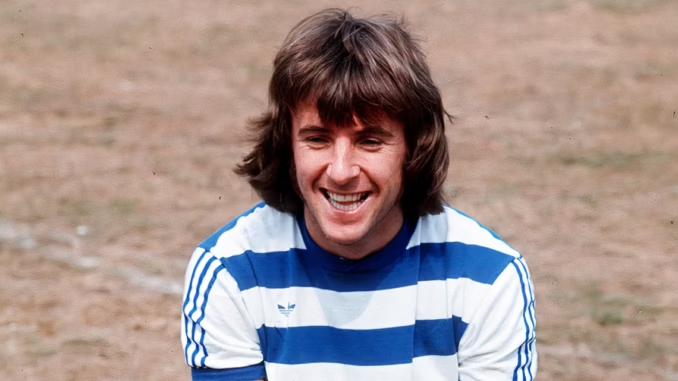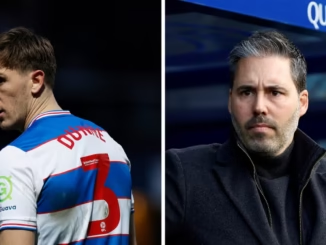
Queens Park Rangers’ capture of mercurial talent Stan Bowles in 1972 will forever go down as one of their greatest-ever moves.
He arrived at the Hoops from Carlisle United in 1972 and went on to become one of the club’s most legendary players.
Spearheading the club’s climb, almost to the very top of the English pyramid, he was still revered in recent years by the Loftus Road crowd, prior to his passing earlier this year.
Bowles will remain one of the key figures in QPR’s history books for generations to come.
Bowles wasn’t cheap, but he was worth every penny
He arrived at Loftus Road from Carlisle in September 1972 for a remarkable fee of £110,000, which the Bank of England estimate would be worth almost £1.27million in today’s money.
The Rs were then in the old Second Division, now known as the Championship, when football wasn’t the cash-filled game it is today, so it was a significant and risky investment at the time.
But needing a replacement for the recently departed Rodney Marsh to Manchester City earlier in the year, then-boss Gordon Jago felt Bowles was his man.
As we often still see today, a manager putting so much faith and financial weight behind one player can produce undue pressure, and make for a rough period of adjustment — no such issues existed for Bowles.
He was introduced to the west London crowd a week after his signing, a league clash with Nottingham Forest ending in a 3-0 win for QPR.
Bowles assisted Don Givens for the opener, notched the second himself, and played an important role in the third sent home by Andy McCulloch.
He changed the fortunes of QPR
Bowles enjoyed a storied life away from the pitch, which could make for chaotic scenes in his personal life but, like so many of the game’s greats, all that fell away when he laced up his boots.
His footwear was once the centre of one of his classic scrapes: he’d signed a boot deal with two different companies for the same game, so simply wore one of each on either foot.
But no matter the number of kit mishaps or off-field dramas, there was nothing that opponents could do to stop him on matchday.
| Bowles’ recorded career, as per Transfermarkt | |||
|---|---|---|---|
| Club | Apps | Goals | Assists |
| Queens Park Rangers | 223 | 63 | 3 |
| Nottingham Forest | 24 | 2 | 1 |
| Manchester City | 18 | 2 | 0 |
| Leyton Orient | 2 | 0 | 0 |
| Carlisle United | 1 | 0 | 0 |
A mercurial attacking player, often deployed as an inside forward, he’d pull any number of tricks and pace changes out of the bag to beat his opposite number, typically accelerating inside to finish the opportunity himself.
In total, he made 315 appearances for QPR, scoring 96 goals, and spearheading the Hoops’ rise to runners-up behind Liverpool in the 1975/76 First Division campaign, plus a run to the quarter-finals of the UEFA Cup a season later.
He was the club’s talisman in one of the greatest periods of their history, making the substantial initial investment look like a masterstroke in hindsight.
Bowles will never be forgotten at Loftus Road
The forward sadly passed away in February 2024, having been diagnosed with Alzheimer’s disease just under a decade earlier.
Just as Bowles had risen to the occasion for QPR in his playing days, the club played an important role for him in his later years.
Following the diagnosis, the club set up a match in his honour against Bournemouth to raise funds for his ongoing care.
His importance to the story of QPR was epitomised in 2022, when the Ellerslie Road Stand at Loftus Road became the Stanley Bowles Stand.
There may never be a QPR player as important as Bowles — the club struck gold with his £110,000 signing — it’ll take an extremely special player to even enter the conversation at Loftus Road in the future.




1 Trackback / Pingback